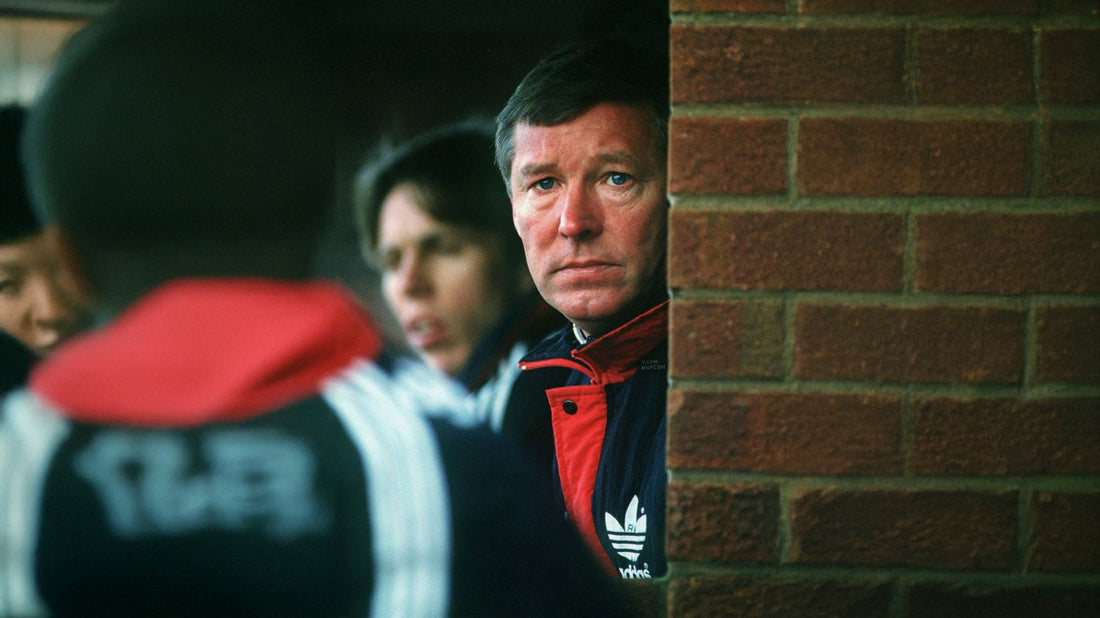Ah, the 2011-12 Barclays Premier League season—a golden era for Scottish football managers. Back then, Scottish managers were a regular and influential presence on Premier League touchlines, shaping the league with their unique styles and footballing philosophies. The sidelines were patrolled by some of Scotland's finest tacticians, who brought their distinct grit, discipline, and passion for the game to the world's most-watched league.
Let’s take a walk down memory lane to relive that era and ask: will we ever see a return of a Scottish managerial cult in the Premier League?
The Tartan Army on the Touchline
In 2011-12, an impressive seven Scottish managers graced the Premier League. Each had their own story, style, and connection to the beautiful game. Here’s a roll call of the magnificent seven:
Sir Alex Ferguson (Manchester United)
The undisputed king of Scottish managers. By the 2011-12 season, Ferguson had already won the Premier League 12 times, and he was chasing his 13th. Known for his fiery hairdryer treatment and knack for building dynasties, he remains the benchmark for all managers—Scottish or otherwise.
Kenny Dalglish (Liverpool)
"King Kenny" returned to Liverpool for a second stint, steering the club with his legendary calmness and charisma. Dalglish’s managerial CV includes leading Blackburn Rovers to their historic Premier League title in 1994-95, making him the only Scottish manager apart from Ferguson to have won the league.
David Moyes (Everton)
Known for his meticulous approach, Moyes was the architect of stability at Everton. While trophies eluded him during his tenure, his ability to build competitive teams on modest budgets cemented his reputation as one of the league’s most consistent managers.
Alex McLeish (Aston Villa)
A man who knew how to survive the pressure of the Premier League, McLeish was fresh off an unexpected League Cup win with Birmingham City before jumping ship to their bitter rivals, Aston Villa.
Paul Lambert (Norwich City)
The new kid on the block. Lambert had guided Norwich City from League One to the Premier League in successive seasons, instilling a sense of belief and tenacity in his squad.
Steve Kean (Blackburn Rovers)
Perhaps the most controversial of the group, Kean faced constant scrutiny and criticism from Blackburn’s fans. Despite the turmoil, he held his ground during a challenging season.
Owen Coyle (Bolton Wanderers)
Although born in Scotland, Coyle’s international allegiance lay with the Republic of Ireland, for whom he made a solitary appearance in 1994. A true believer in attacking football, he brought flair to Bolton's play but struggled to avoid relegation in this campaign.
Why Was 2011-12 the Apex for Scots in the Premier League?
Scotland’s dominance on the touchline during this era wasn’t accidental. These managers represented a lineage of leadership honed in the rough-and-tumble of Scottish football. They were products of a footballing culture that valued hard work, tactical discipline, and the ability to thrive under pressure. Moreover, the legacy of managers like Jock Stein and Bill Shankly undoubtedly inspired this generation.
But the success wasn’t just about heritage. Each of these managers had proven themselves, whether by winning trophies, overachieving with smaller clubs, or delivering results with limited resources.
From Seven to One: The Decline of Scottish Managers
Fast forward to today, and the situation is starkly different. The 2024-25 season sees just **one Scottish manager in the Premier League—Russell Martin** of Southampton. A relatively fresh face, Martin is trying to make his mark by promoting possession-based football. But his presence is a far cry from the days when Scottish accents dominated post-match interviews.
Why has this happened? Several factors could explain the decline:
- Globalisation of Football: The Premier League has become an international hub, with managers from around the globe bringing diverse styles and philosophies.
- Erosion of Scottish Football's Status: Scotland’s domestic league struggles to compete with Europe’s elite, limiting opportunities for Scottish managers to showcase their talents.
- High Stakes and Short Leashes: Clubs are increasingly opting for established names or promising young managers with modern, progressive ideas.
The Premier League Trophy: Scotland's Crown Jewel
Here’s a stat that never fails to stir pride north of the border: a Scottish manager has won the Premier League **14 times**—13 times by Sir Alex Ferguson and once by Kenny Dalglish. In contrast, **no English manager has ever won the Premier League.** Not once. Let that sink in.
This remarkable achievement highlights the historical influence of Scottish managers in English football. It’s a legacy that feels almost impossible to replicate in the current climate.
Will the Cult of Scottish Managers Return?
The question lingers: can Scotland reclaim its managerial glory days? The optimist would point to emerging talents like Russell Martin, while the realist would acknowledge the daunting odds.
For a resurgence, several things would need to align:
- Investment in Coaching: Scotland’s FA must prioritise producing top-class coaches with modern football philosophies.
- Success Stories: A new wave of successful Scottish managers could inspire clubs to look north once again.
Conclusion
The 2011-12 season was a high-water mark for Scottish managers in the Premier League, showcasing the country’s unique contribution to football culture. While the days of Sir Alex Ferguson and Kenny Dalglish may feel like a distant memory, the spirit of Scottish leadership remains a part of the league’s DNA.
Whether the cult of Scottish managers will rise again is uncertain. But one thing is clear: the legacy of those tartan touchline heroes will continue to inspire generations to come.
As fans of the game—and as Scots—we can only hope for another golden era when the Premier League’s dugouts are once again filled with voices that call football.
What do you think? Are we witnessing the end of an era, or is a revival on the horizon? Share your thoughts below!

